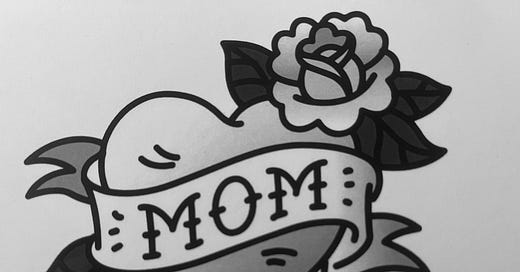Daughter of Twins, Doris and Minerva
Doris gave me life and raised me. Minerva, adopted me after my mother died. I was sixty-three. Minerva was ninety-one.
I am the daughter of twins.
Doris gave me life and raised me. Her twin sister, Minerva, adopted me after my mother died. I was sixty-three. Minerva was ninety-one.
The twins didn’t look or sound alike, but they said a lot of the same things. Because mom was the more mellow of the two, when Minerva spoke, it was like having an actor with a bad attitude read my mom’s lines.
Doris had gotten married first and had a baby, my brother, Sam. Then Minerva married and gave birth to David. The score was even, but not for long. When the doctor told Minerva she couldn’t have more children, she became resentful and directed her anger not at my mother, for outdoing her by having a daughter, but at me, for being that daughter. She never liked me. The feeling was mutual.
My mother died at seventy-nine. A month later, Minerva's fifty-three-year-old son David died. The loss of the two most important people in her life crushed Minerva. I was grieving as well but concerned that with the loss of her son, Minerva had no reach into the future. Ignoring the bad feelings between us, I become her caretaker and that of Uncle Sam, her disabled husband. I traveled regularly from my home in the Hudson Valley to northern New Jersey to take care of their needs.
A few years later Minerva informed me she intended to adopt me. I was to meet her and Alan, her lawyer, at the courthouse in Hackensack. When I asked why, she said, “It’s Alan’s idea.” No further explanation was forthcoming.
The adoption was straightforward and unsentimental. The formalities were concise and the judge cordial. As we left the judge’s chambers, Alan, by way of celebration, said to Minerva, “Now you have a daughter!”
As negative as ever, Minerva replied, “But she won’t listen to me.”
She never divulged the reason for the adoption which may have been to ensure my access to her if, in failing health, she was hospitalized. Ultimately, it didn’t matter.
Despite how challenging our relationship was, I put up with her unpleasantness because there was no other family member who could step in. Without me, she and Uncle Sam would have been utterly alone.
Minerva remained active well into her eighties. She swam at the Y and continued to drive until she made an unfortunate left turn into oncoming traffic, totaling her car and her confidence. After that, I drove her to doctors’ appointments and wherever else she needed to go.
One day when I arrived, she excitedly showed me a silky shawl she had painstakingly adorned with long fringe that floated gracefully as she pretended to twirl around the room. The gift of creativity had momentarily awakened a long dormant girlish glee in her. As a young woman, she had been an actress in local theater and designed her own clothes. It was a privilege for me to glimpse what had been.
Minerva was an unusual combination of generosity and meanness. She replaced my car when it broke down and propped up my finances when my freelance work slowed. At the same time, she continued to find fault with me. In all the years I was her caretaker, only once near the end of her life did she say, “I don’t know how I would manage without you!”
Gratefully, I thanked her. “Well,” she said, “If I’d known it meant so much to you, I would have told you sooner.” She never mentioned it again.
Minerva died in her ninety-fifth year on Valentine’s Day, on the second day of the first vacation I’d taken in twenty years.
I flew back from Florida and made arrangements for my adopted mother.






I am to see this story in your collection - a tale of family redemption, however imperfect, that clearly took a lifetime to unfold.
I wonder who you might adopt at 91!